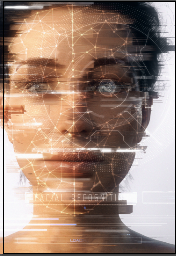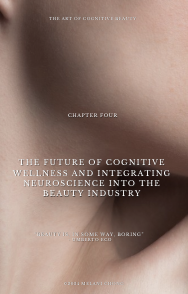How AI Will Improve Your Beauty Experience

Coming In Hot
How AI Beauty Tools and Apps Will Transform Our Self-Perception and Enhance Cognitive Beauty
The advent of AI-powered beauty tools and apps is poised to revolutionize how we perceive ourselves, offering a unique fusion of technology and psychology that can enhance the principles of cognitive beauty. These innovations go beyond mere aesthetic enhancements; they tap into the complex interplay between our visual perception, cognitive processes, and emotional responses, fundamentally reshaping our understanding of beauty and self-identity.
The Evolution of AI in Beauty
AI beauty tools have rapidly evolved from simple filters to sophisticated applications that can analyze, recommend, and even simulate cosmetic procedures. These tools use advanced algorithms to assess facial features, skin type, and even the symmetry and proportion of the face—key elements of cognitive beauty. By providing personalized feedback and recommendations, AI beauty apps empower users to make informed decisions about their appearance, fostering a deeper understanding of their own beauty potential.
Enhancing Self-Perception
One of the most profound impacts of AI beauty tools is their ability to enhance self-perception. By aligning visual stimuli with cognitive processes such as symmetry and harmony, these tools can help individuals recognize their unique aesthetic qualities. This can lead to a more positive self-image and increased self-esteem, as users see themselves in a new, more flattering light. Moreover, AI’s ability to simulate different looks before committing to changes allows for more thoughtful and confident decisions in self-presentation.
Cognitive Beauty and Personalized Experiences
Cognitive beauty, which involves the subjective evaluation of visual stimuli, is deeply personal and influenced by cultural norms and individual experiences. AI beauty tools cater to this personalization by offering tailored beauty experiences. For instance, an AI app can recommend skincare routines based on a person’s unique skin conditions or suggest makeup techniques that enhance specific facial features. This level of personalization not only aligns with cognitive beauty principles but also reinforces the user’s sense of individuality and self-worth.
The Future of AI in Beauty
As AI continues to advance, the potential for beauty tools to influence our cognitive processes grows. Future developments could include AI that adapts in real-time to a user’s mood or environment, providing dynamic beauty advice that enhances both appearance and well-being. Additionally, AI could play a role in breaking down harmful beauty standards by offering a broader range of aesthetic ideals that reflect diverse cultures and identities.
The Intersection of Technology and Psychology
The integration of AI in beauty is not just a technological innovation; it’s a psychological one as well. By helping users see themselves through a lens that combines objective analysis with personalized recommendations, AI tools can promote a healthier relationship with beauty. This aligns with the broader goal of cognitive beauty: to enhance our understanding and appreciation of our own unique aesthetic qualities, ultimately leading to greater self-acceptance and happiness.
In conclusion, AI beauty tools and apps are more than just modern conveniences—they are transformative technologies that can deepen our understanding of beauty and self-perception. As these tools continue to evolve, they will undoubtedly play a crucial role in shaping how we see ourselves and how we define beauty in the digital age. Through the lens of cognitive beauty, AI has the potential to not only change our appearance but also enhance our overall sense of well-being and self-identity.
- Melani Chong
Also in MC2 BLOG

Welcome to The Future of Neuro Beauty
The understanding of Cognitive Beauty opens new possibilities for beauty treatments that go beyond surface-level aesthetics and delve into the underlying neurobiology of beauty and the diverse world of aesthetics.

Your Skin Is A Quantum Communicator
Your skin is a sensory force field, constantly receiving and emitting powerful signals. It’s how you interact with the world and how the world interacts with you.
Your skin is a quantum communicator—it picks up vibrations, temperature changes, even emotional energy from others - Melani Chong

The Skin - Brain Axis - How It works
Melani Chong Neuro Beauty Expert ::: The Skin-Brain Superhighway
Did you know your skin and brain have a hotline to each other? Yep, they're chatting 24/7 through a superhighway of nerves and biochemicals. Stress, mood, and even how well you sleep can affect your glow-up game.
Because understanding this connection gives you the power to take control of your skin's story. Managing stress, sleeping well, and using neurocosmetic ingredients can help keep both your mind and skin in harmony.

